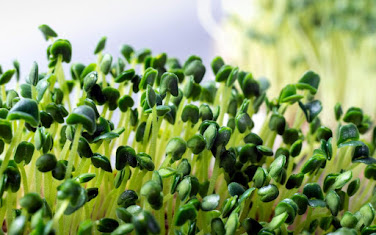EXPLORING THE WORLD OF PLANT-BASED ALTERNATIVES
Introduction:
In recent years, the surge in interest in plant-based diets has led to a growing array of innovative substitutes for meat and dairy milk. These alternatives not only cater to the preferences of vegans but also appeal to individuals seeking healthier and more sustainable dietary choices. This article aims to delve into the diverse landscape of plant-based substitutes for meat and dairy milk, highlighting their nutritional profiles, culinary versatility, and environmental impact
Plant-Based Meat Alternatives: Beyond the Traditional:
 The quest for plant-based meat alternatives has given rise
to a variety of innovative products that mimic the taste and texture of
traditional meat. Products like tofu, tempeh, seitan, and jackfruit serve as
versatile substitutes, providing protein, texture, and flavor. Researchers may
explore the nutritional content, processing methods, and sensory aspects of
these alternatives to better understand their role in a balanced diet.
The quest for plant-based meat alternatives has given rise
to a variety of innovative products that mimic the taste and texture of
traditional meat. Products like tofu, tempeh, seitan, and jackfruit serve as
versatile substitutes, providing protein, texture, and flavor. Researchers may
explore the nutritional content, processing methods, and sensory aspects of
these alternatives to better understand their role in a balanced diet.
Beyond Burgers and Sausages: The Rise of Meat Analogues:
The market for meat analogs, such as Beyond Meat and Impossible Foods, has witnessed exponential growth. These products often use a combination of plant proteins, like pea protein or soy, to recreate the taste and texture of meat. Studying the nutritional value, taste preferences, and consumer acceptance of these analogs can be intriguing areas of research for scholars.
Milk Alternatives: Navigating the Dairy-Free Options:
The demand for dairy milk alternatives has resulted in a plethora of plant-based options. Soy, almond, oat, and coconut milk are just a few examples. Researchers may investigate the nutritional content, fortification methods, and environmental sustainability of these alternatives compared to traditional dairy milk.
Nut and Seed Butters: Creamy and Versatile Meat Substitutes:
Nut and seed butters, such as almond butter, peanut butter, and tahini, have found their way into plant-based recipes as flavorful and protein-rich alternatives to meat. Exploring the nutritional profiles, culinary applications, and potential health benefits of these butters can contribute valuable insights for scholars studying plant-based diets.
Legumes and Pulses: The Protein Powerhouses:
Fermented
Products: Unlocking Umami and Complexity:
Fermented products like miso, tempeh, and kimchi offer not
only unique flavors but also nutritional benefits. Scholars can explore the
fermentation process, the impact on the gut microbiome, and the integration of
these products into plant-based diets.
Conclusion:
The landscape of plant-based substitutes for meat and dairy
milk is rich and varied, offering many options for consumers seeking
ethical, sustainable, and health-conscious choices. Researchers and scholars
have an exciting opportunity to contribute to the understanding of these
alternatives, investigating their nutritional content, culinary applications,
and broader implications for human health and the environment. As the demand
for plant-based products continues to rise, the exploration of these
substitutes remains a dynamic and evolving field of study.




Comments
Post a Comment